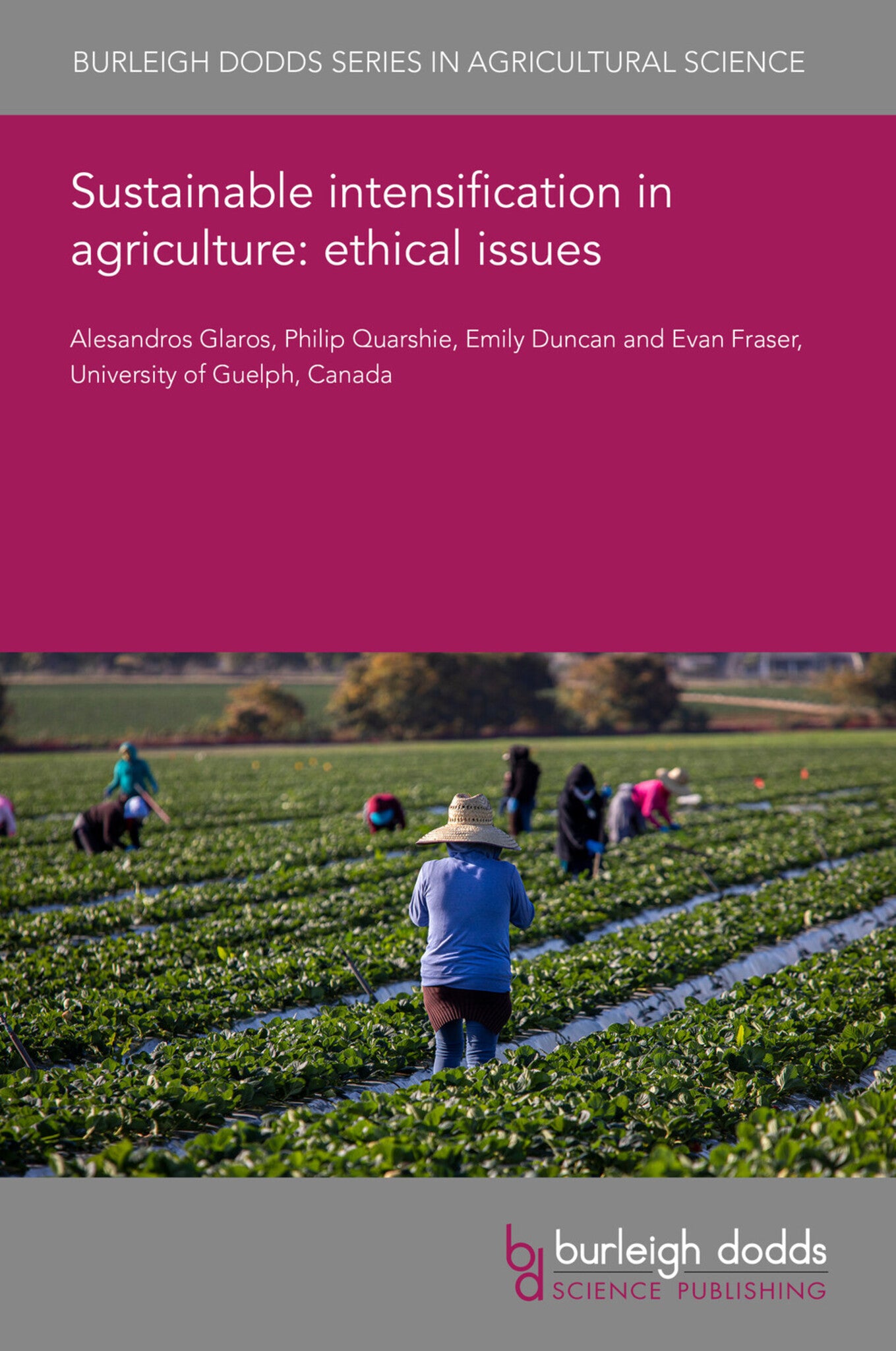We're sorry. An error has occurred
Please cancel or retry.
Sustainable intensification in agriculture: ethical issues

Some error occured while loading the Quick View. Please close the Quick View and try reloading the page.
Couldn't load pickup availability
- Format:
-
12 June 2023

Research scientists predict to feed the growing population an increase in agricultural yields at a lower environmental footprint, what some call ‘sustainable intensification’, is required. Yet, some argue that sustainable intensification fails to address systemic social, economic, or environmental concerns. This chapter reviews the key research and policy goals underpinning this approach considering the novel technologies of agriculture. We highlight four ethical questions: 1) What happens to spared land? 2) What socio-economic cost should increasing protein demand be satisfied? 3) How can basic food needs be met while addressing systemic food security issues; and 4) How do we simultaneously reconcile farmer livelihoods and rural revitalization for sustainable development? We argue for a pragmatic approach to sustainable intensification that clearly articulates ethical questions, negotiates these tensions with agricultural stakeholders on a case-by-case basis, and adopts inclusive and reflexive governance processes to continuously re-evaluate sustainable intensification outcomes.

TECHNOLOGY & ENGINEERING / Agriculture / Sustainable Agriculture, Sustainable agriculture, TECHNOLOGY & ENGINEERING / Agriculture / Agronomy / Crop Science, PHILOSOPHY / Ethics & Moral Philosophy, Agricultural science, Agronomy and crop production, Social and ethical issues

- 1 Introduction
- 2 The imperative for sustainable intensification
- 3 Policy goals and ethical trade-offs
- 4 Pragmatic responses to intensification-related tensions
- 5 Conclusion
- 6 Where to look for further information
- 7 References



